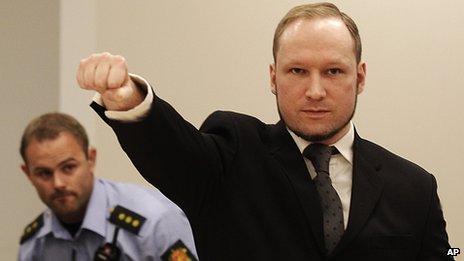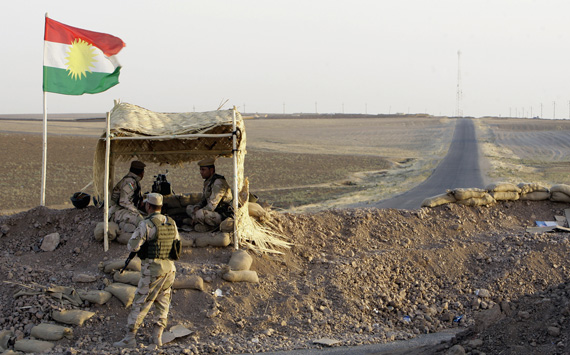In the western world today, the common perception of a terrorist, for the most part, is an Islamic fundamentalist which is instilled in the minds of most westerners as being the inherent and primary form of terrorist activity in the world today. However, just because the general public tends to associate terrorism with Islamic fundamentalism does not necessarily mean it stands alone as the greatest perceived threat to international security. Terrorist activity comes in many forms, including right wing extremism, which has taken a less dominant role in the media and general population’s depictions of terrorism. Right wing extremism does not appear to get the same public attention as Islamic fundamentalism, but it has been the root cause of many deaths by way of terrorism in modern history. Right wing extremists can be classified as a group that is deeply rooted in nationalism and racism. They are governed by the idea that ethnic affiliation to a nation or race is if the utmost importance for an individual, all other interests and values are subordinate to nationality and race. Furthermore, the passionate feelings of race and nationality as being the exclusive indicator of good human nature is what makes right wing extremists’ views so dangerous. Acting out violently as a result of xenophobic ideals has given right wing extremism prominence in relation to other terrorist categories.
The Department of Homeland Security outlines that there are fears of resurgence in right wing terror, as the harsh economic climate, and the increasingly polarized presidential elections present unique drivers for right wing extremism to breed.

In recent history, Timothy McVeigh’s bombing of the Murrah Building in Oklahoma City was admittedly as the result of the multilateral path the United States had been headed down from a global political perspective. Another commonly known right wing extremist is Anders Breivik, who committed atrocities in Norway in the name of defending Norway from Islamic influence. It is clear, based on the brief description of right wing extremists, that they are inspired by racism and ethnocentricism, as well as an uneasiness regarding their societal status as a result of multiculturalism’s prominence in the west.
Although it does not have the organization, and deeply rooted historical background of Islamic fundamentalism, right wing extremism is still a valid terrorism concern, and is a legitimate threat to international security in modern history. Although both Anders Breivik and Timothy McVeigh justified the targets of the attacks as being related to their right wing cause, it is very difficult to determine how right wing extremists come to the conclusion that their targets are justifiable by their cause, especially considering they do not follow a specific religious text, or seek justification through precedented materials. However, right wing extremists do generally target based on their xenophobic ideals.
There is no doubt that right wing extremism is a form of terrorism that is a relevant threat to society, but in comparison, right wing extremism does not qualify as being nearly as large a threat as Islamic fundamentalism. Terrorist groups with religious imperatives are far more dangerous in the present day than the ethno-nationalist /separatist groups that dominated national terrorism in the past. That being said, it is important to note that right wing extremism is still a valid threat, and the changing nature of terrorism towards religious extremists cannot account for the actions of right wing extremists like Anders Breivik.
Currently, in the United States, the Department of Homeland Security is keeping a close watch on uprisings in right wing extremist groups, however, unlike al-Qaeda; the department does not have any information on organizations of a right wing nature currently planning acts of violence because of their predominantly “lone wolf” terror tactics. According to the declassified document Rightwing Extremism: Current Economic and Political Climate Fueling Resurgence in Radicalization and Recruitment, the Department of Homeland Security outlines that there are fears of resurgence in right wing terror, as the harsh economic climate, and the increasingly polarized presidential elections present unique drivers for right wing extremism to breed. However, the fact that there is currently no intelligence to state that right wing extremist groups are planning violent acts of terror could lead one to believe that the threat of right wing extremists being serious in nature and jeopardizing international security is quite slim, yet still relevant.




